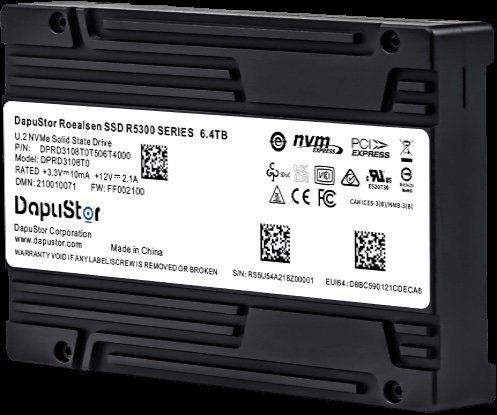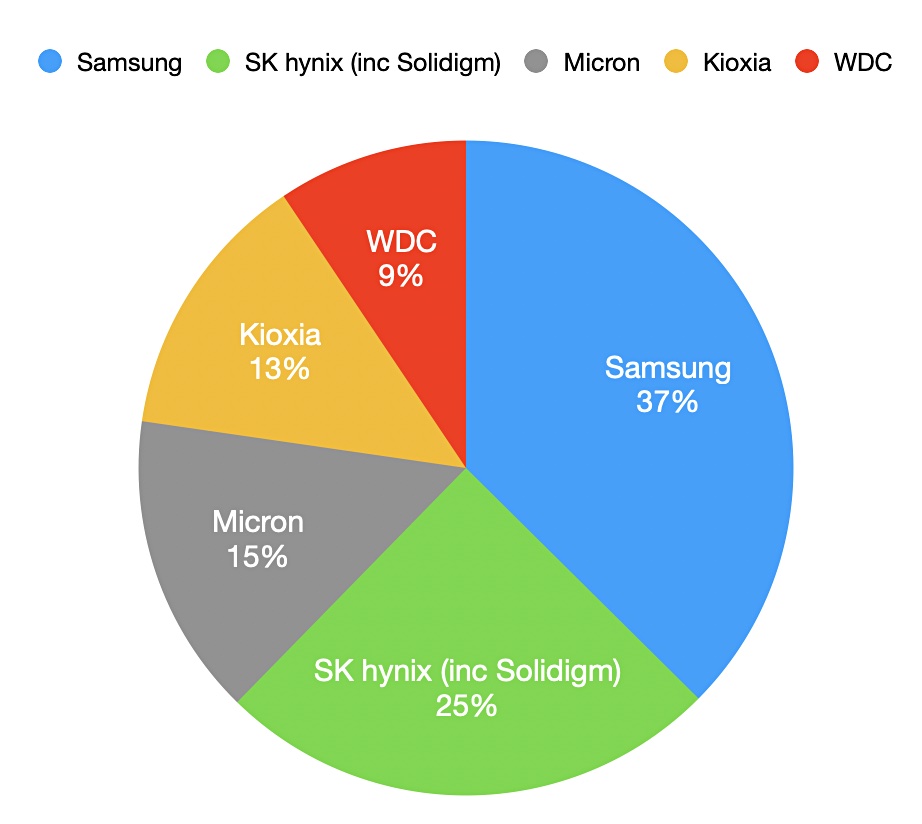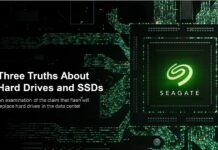The Storage Newsletter reports that Atempo SAS has requested the opening of a judicial recovery procedure to finalize the restructuring of its activities and accelerate its business development. Atempo intended to raise funds to move forward, but the investor exit dispute with a long-time financial partner has hindered this effort so Atempo asked for the protection of the Commercial Court. In recent years Atempo has built resale and distribution agreements with suppliers such as DDN, Quantum, Huawei, Panasas, and Eviden, and cloud service providers like OVH, Oustcale, and Scaleway. It also has a network of national and regional system integrators.
…
AWS has announced Redshift MySQL integrations with Aurora PostgreSQL, DynamoDB, and Relational Database Service (RDS) to connect and analyze data without building and managing complex extract, transform, and load (ETL) data pipelines. Customers can also now use Amazon OpenSearch Service to perform full-text and vector search on DynamoDB data in near real time.
…
What is the status of Velero container backup business CloudCasa? It has ambitions for funding and a spin off from Catalogic. Ken Barth, Catalogic CEO, told us: “Catalogic Software is very bullish on the future of CloudCasa. As you know, we were seeking funding partners for a spin out earlier in the year but with the slowdown in VC funding and exits, we haven’t seen anything that has excited us yet.
“CloudCasa has seen good market traction from the April recent release of CloudCasa for Velero. In November, based on customer demand, we added the option for organizations to self-host CloudCasa on-premises or in a cloud, or stay with our original BaaS architecture. We are in a great position to take advantage of the increasing adoption of Kubernetes in production environments, and CloudCasa placed well in the recent IDC MarketScape: Worldwide Container Data Management 2023 Vendor Assessment.
“We are looking forward to the opportunities that 2024 will bring for Catalogic and CloudCasa, both in terms of growth and strategic partnerships.”
…
Data observability supplier Cribl says it has surpassed $100 million in ARR, becoming the fourth-fastest infrastructure company to reach centaur status (behind Wiz, Hashicorp, and Snowflake). It also just launched its international cloud region, making its full suite of products available to customers in Europe. Cribl has closed its Series D of $150 million, bringing its total funding to date over $400 million from investors including Tiger Global, IVP, CRV, Redpoint Ventures, Sequoia, and Greylock Partners.
…
Cancer Research UK Cambridge Institute is using storage supplied by Zstor GmbH for its Lustre Object Storage Servers (OSS). The CIB224NVG4 2-Node Server, designed by Zstor, is a 2-node server configuration in a 2U format with 24 DapuStor Roealsen5 NVMe Gen4 SSDs built with TLC 3D NAND.

…
Lakehouse supplier Databricks has launched a suite of Retrieval Augmented Generation (RAG) tools. These will support enterprise users with overcoming quality challenges by allowing them to build high-quality, production LLM apps using their data. RAG is also a powerful way of incorporating proprietary, real-time data into LLM applications. There is a public preview of:
- A vector search service to power semantic search on existing tables in your lakehouse.
- Online feature and function serving to make structured context available to RAG apps.
- Fully managed foundation models providing pay-per-token base LLMs.
- A flexible quality monitoring interface to observe production performance of RAG apps.
- A set of LLM development tools to compare and evaluate various LLMs.
More details can be found here.
…
DataCore’s Swarm v16 object storage release has added a single-server deployment for edge workloads. Swarm has been containerized and streamlined onto a single server powered by Kubernetes for compact configurations suited for Edge and Remote Office/Branch Office (ROBO) locations. Swarm 16 includes integration with Veritas NetBackup via immutable S3 object locking, which complements similar joint developments with Veeam and Commvault.
…
Data integration supplier Dataddo has launched its Data Quality Firewall, which ensures the accuracy of any data the platform extracts to storages like BigQuery, Snowflake, and S3. It claims the firewall is the first of its kind to be fully embedded in an ETL platform at the pipeline level. Dataddo says it performs checks on null values, zero values, and anomalies, and can be configured individually for each column, enabling granular quality control. It offers multi-mode operation to accommodate various fault tolerance standards, and rules are easy to configure and test in the platform’s no-code interface.
…
Datadobi’s StorageMAP v6.6 release has object storage support. It can now analyze object data stored on any S3-compliant platform, offering users a complete view of their unstructured data, including both File (SMB and NFS) and Object (S3) data. v6.6 also enables users to search for files based on specific metadata criteria and copy those files to a file or object target. For instance, they can easily copy files from a file server to a data lake for normalization and aggregation prior to copying (or moving) training datasets to apps for analytics and/or AI processing.
…
Data lakehouse supplier Dremio announced the public preview of Dremio Cloud for Microsoft Azure. It offers companies self-service analytics coupled with data warehouse functionality and the flexibility of a data lake. It’s built on Apache Arrow’s columnar foundation, and offers organizations rapid and scalable query performance for analytical workloads. A native columnar cloud cache (C3) provides fast throughput and rapid response times on Azure Data Lake Storage (ADLS). The software delivers sub-second response times for BI workloads.
Dremio Cloud can combine data located in cloud data lakes, leveraging modern table formats like Iceberg and Delta Lake, with existing RDBMSes. By delivering a semantic layer across all data, it provides customers with a consistent and secure view of data and business metadata that can be understood and applied by all users.
…
Data integrator Fivetran announced support for Delta Lake on Amazon S3. Fivetran customers can land data in Amazon S3 and access their Delta Lake tables. In April Fivetran announced support for Amazon S3 with Apache Iceberg. Fivetran says its no-code platform offers enterprises a simple, flexible way to move data from nearly any data source to any destination.
…
Hitachi Vantara announced the launch of Hitachi Unified Compute Platform (UCP) for GKE Enterprise, a new, integrated hybrid solution, with long-time partner Google Cloud. Through Google Distributed Cloud Virtual (GDCV), Hitachi UCP for GKE Enterprise offers businesses a unified platform to manage hybrid cloud operations. GDCV on Hitachi UCP empowers enterprises to modernize applications, optimize infrastructure and enhance security across hybrid cloud environments by combining the flexible cloud infrastructure of Hitachi UCP with the versatility and scalability of GDCV. The system can deploy and manage workloads within on-premises data centers, cloud environments or edge locations. As part of its launch, GDVC on Hitachi UCP has also been included in Google’s Anthos Ready platform partners program, which validates hardware that works seamlessly with GDCV.

…
HYCU appointed Angela Heindl-Schober as SVP Global Marketing. Her CV includes global technology companies such as Vectra AI (most recent amd 8-years in place), Riverbed Technology, Infor, and Electronic Data Systems (now part of HPE). HYCU says she has a proven track record spanning over 28 years in global marketing roles. She effectively replaces HYCU CMO Kelly Hopping who went part-time in August this year, and became fill-time CMO at DemandBase in September.
…
TD SYNNEX subsidiary Hyve Solutions recently earned a top annual rating in the Human Rights Campaign Foundation’s assessment of LGBTQ+ workplace equality in the 2023-2024 Corporate Equality Index and has been recognized as a leader of workplace inclusivity in the United States. Hyve sells storage hardware to hyperscaler customers.
…
Informatica has launched enhanced Databricks-validated Unity Catalog integrations. Informatica’s no-code data ingestion and transformation pipelines run natively on Databricks for use with Databricks and Databricks Unity Catalog. The integration gives joint customers a best-in-class offering for onboarding data from 300+ data sources and rapidly prepares data for consumption with an extensive library of out-of-the-box, no-code, proven, repeatable data transformation capabilities.
…
Kinetica announced the availability of Kinetica SQL-GPT for Telecom, the industry’s only real-time offering that leverages generative AI and vectorized processing to enable telco professionals to have an interactive conversation with their data using natural language, simplifying data exploration and analysis. The Large Language Model (LLM) utilized is native to Kinetica, ensuring robust security measures that address concerns often associated with public LLMs, like OpenAI.
…
Lenovo said its latest quarterly (Q2 2024) results made it the number three worldwide storage supplier, having been number four last quarter. Its storage products are sold by its ISG business unit, which recorded $2 billion in revenues. Our records of the latest supplier quarterly storage results are:
- Dell – $3.84 billion
- NetApp – $1.56 billion
- HPE – $1.11 billion
- Pure – $762.84 million
Lenovo’s storage revenues thus fall somewhere between $1.56 billion and $1.11 billion. The company said it is seeing clear signs of recovery across the technology sector and will “leverage the opportunities created by AI, where it is uniquely positioned to succeed given its hybrid AI model, pocket-to-cloud portfolio, strong ecosystem and partnerships, and growing portfolio of AI technologies and capabilities.”
…
File collaboration startup LucidLink is launching a film series called Unbound, profiling how creatives are unlocking new possibilities without needing to work from the same office. The first episode will kick off with the creative studio Versus. It will show how they are collaborating across eight time zones and producing their best work with the support of LucidLink.
The series will run throughout 2024, with each episode spotlighting a diverse group of creatives across creators, media, advertising, and gaming. LucidLink says it serves as an indispensable component of their workflow and process.
…
Object First has issued a downloadable case study of its customer Centerbase. This is a cloud-based platform that aids in managing law firms, and their data recovery plans that ensures its backups are protected with out-of-the-box immutability. Centerbase chose Object First’s Ootbi with the goal of reducing restore time from its cloud repository – and ended up decreasing its recovery point objective (RPO) by 50 percent, from eight hours to just four.
…
The SNIA is planning an open collaborative Plugfest colocated at SNIA Storage Developer Conference (SDC) scheduled for September 2024, aimed at improving cross-implementation compatibility for client and/or server implementations of private and public cloud object storage solutions. This endeavor is designed to be an independent, vendor-neutral effort with broad industry support, focused on a variety of solutions, including on-premises and in the cloud.
An SNIA source tells us: “There are many proprietary and open source implementations claiming compatibility, but in reality there are plenty of discrepancies which lead to customer surprises when they’re transitioning from one object storage solution to another.” Some examples were mentioned at SDC.
…
Data analytics supplier Starburst, which is based on open source Trino, announced new features in Starburst Galaxy to help customers simplify development on the data lake by unifying data ingestion, data governance, and data sharing on a single platform. It added support for:
● Near real-time analytics with streaming ingestion: Customers can leverage Kafka to hydrate their data lake in near real-time. Upcoming support for fully managed solutions, such as Confluent Cloud, is also planned.
● Automated data governance: As new data lands in the lake, machine learning models in Gravity – a universal discovery, governance, and sharing layer in Starburst Galaxy – will automatically apply classifications for certain categories. Depending on the class, Gravity will apply policies granting or restricting access. Now, as soon as PII (personally identifiable information ) lands in the lake, Gravity will be smart enough to identify and restrict access to that data.
● Automated data maintenance: abstracts away common management tasks like data compaction and data vacuuming.
● Universal data sharing with built-in observability: With Gravity, users can easily package data sets into shareable data products to power end-user applications, regardless of source, format, or cloud provider.New functionality will allow users to securely share these data products with third-parties, such as partners, suppliers, or customers.
● Self-service analytics powered by AI: New AI-powered experiences in Galaxy, like text-to-SQL processing, will enable data teams to offload basic exploratory analytics to business users, freeing up their time to build and scale data pipelines.
…
Distributed storage supplier Storj announced the launch of Storj Select, which delivers customizable distributed storage to meet specific security and compliance requirements of organizations with sensitive data, such as healthcare and financial institutions. Customer data is only stored on points of presence that meet customer specified qualifications, such as SOC2, GDPR, and HIPAA, with Storj Select. It is also announcing CloudWave, a provider of healthcare data security offerings, as a customer that chose Storj Select to provide compliant data storage.
…
UK IT services company StorTrec has announced a partnership with Taiwanese company QNAP to expand its services to global manufacturers. StorTrec is focused on delivering end-to-end support to data storage manufacturers and its resellers. Prior to the partnership, QNAP only offered warranties with its products. But this partnership will allow QNAP to offer customers a value-added option for full support for their storage solutions, with StorTrec managing all of the support services.
…
Analyst TrendForce released enterprise SSD supplier revenue shares for Q3 203. It said there has been an uptick in enterprise SSD purchases by server OEMs in 4Q23. TrendForce notes that Micron’s strategic focus on PCIe SSDs in recent years is now paying off, allowing the company to continue increasing its market share even amid subdued enterprise SSD demand. It notes that as other enterprise SSD suppliers shift to technologies above 176 layers, Kioxia’s continued use of 112-layer technology presents challenges in increasing supply flexibility and optimizing profitability. WDC’s enterprise SSD sales were primarily focused on North American CSP clients, who generally maintained conservative purchasing strategies, leading to a continued decline in overall purchases in Q3.

As WDC undergoes corporate restructuring, it is anticipated that the production timeline for PCIe 5.0 enterprise SSDs will be shortened. This constraint could result in WDC’s enterprise SSD revenue growth falling behind that of other suppliers in subsequent periods.

Samsung is anticipated to lead in revenue performance growth among suppliers as the first to mass-produce the PCIe 5.0 interface.
…
AI-enabled data observability and FinOps platform supplier Unravel Data has joined the Databricks Partner Program to deliver AI-powered data observability into Databricks for granular visibility, performance optimizations, and cost governance of data pipelines and applications. Unravel and Databricks will collaborate on go-to-market efforts to enable Databricks customers to leverage Unravel’s purpose-built AI for the Lakehouse for real-time, continuous insights and recommendations to speed time to value of data and AI products and ensure optimal ROI.








